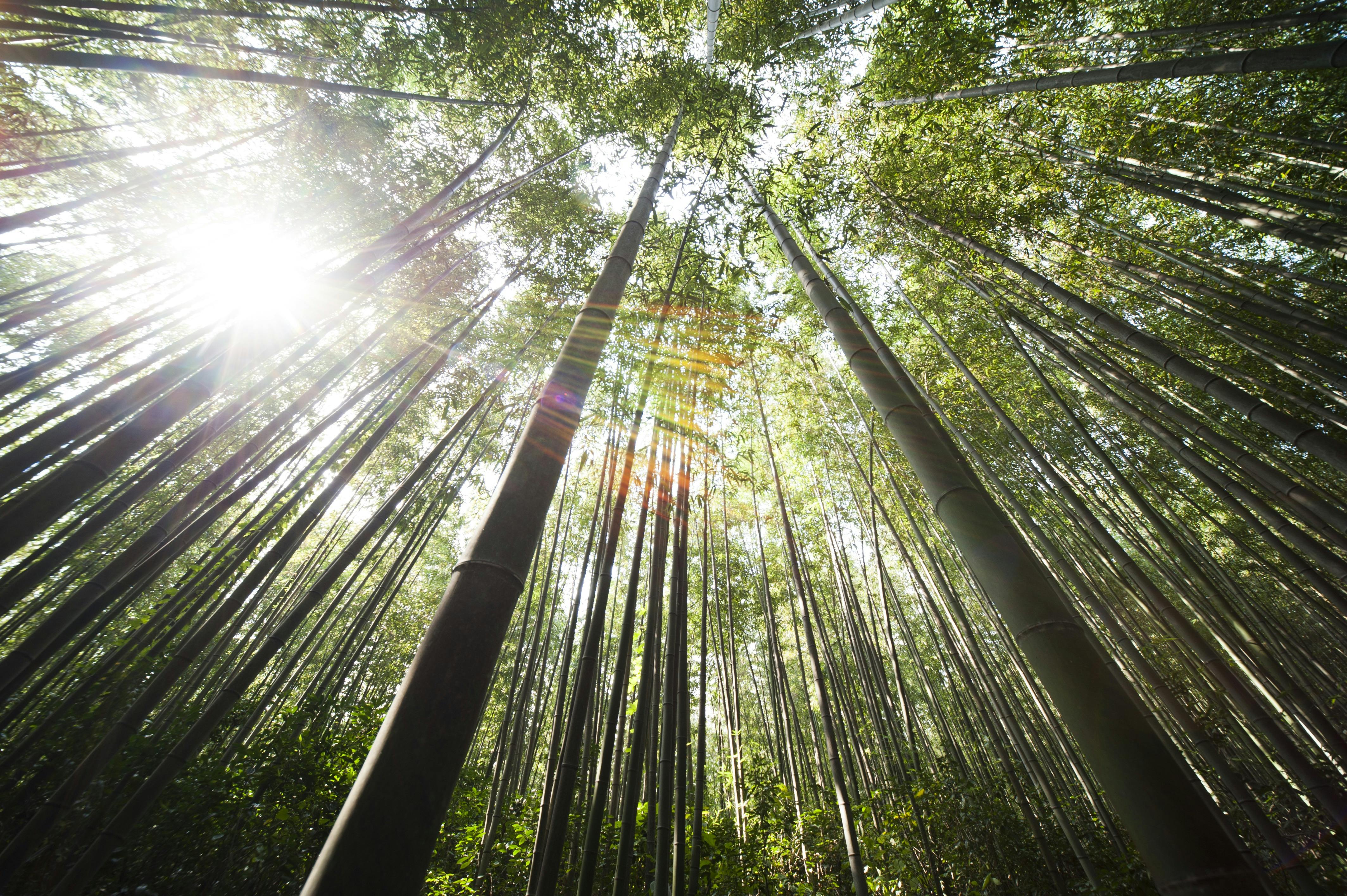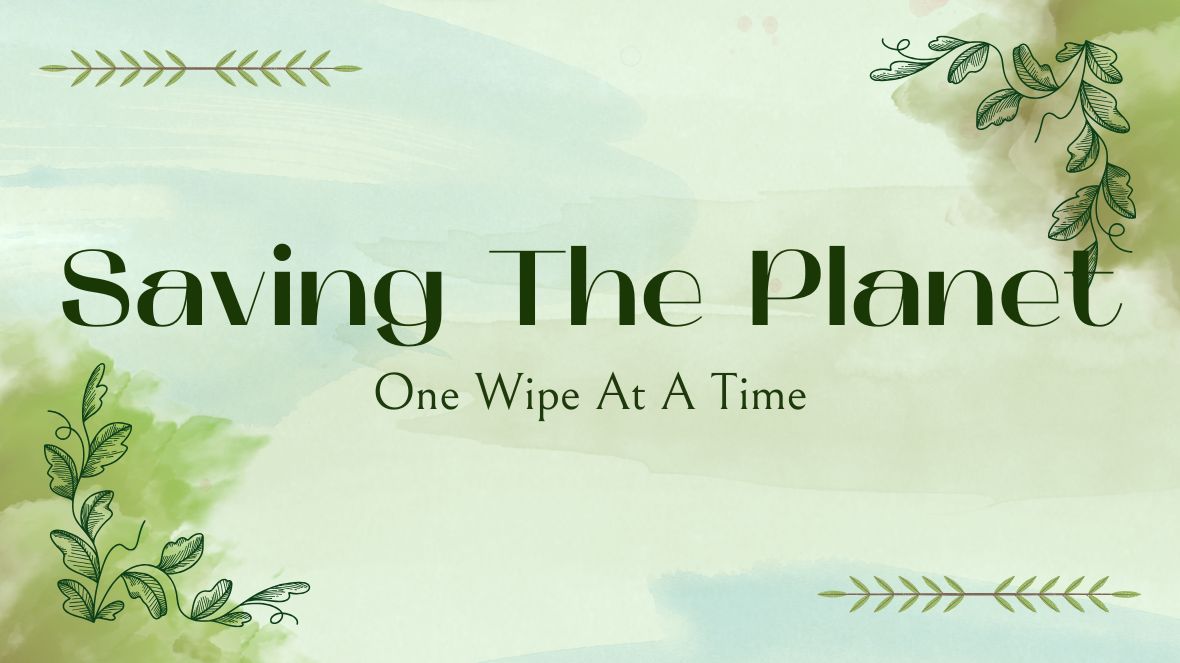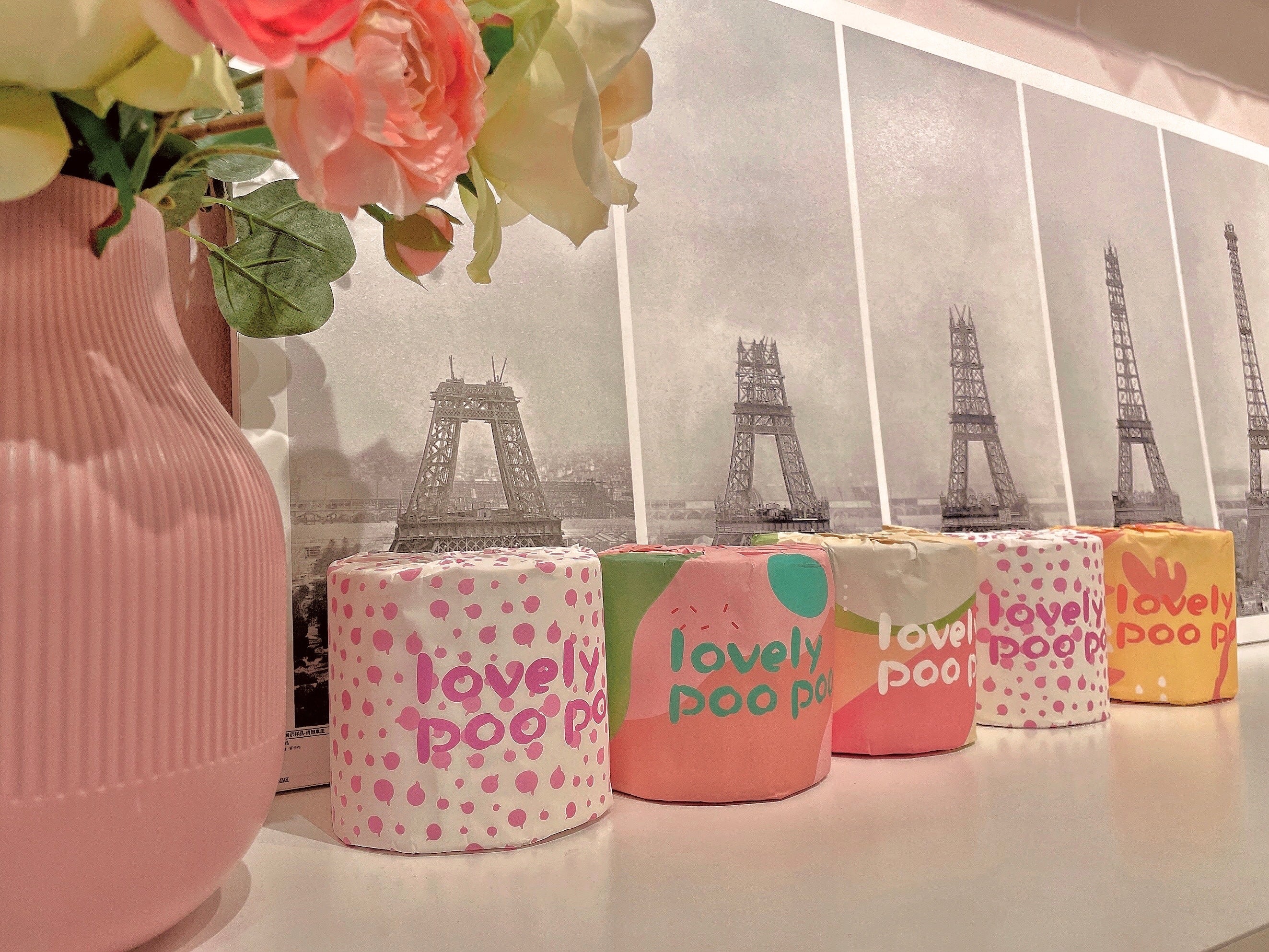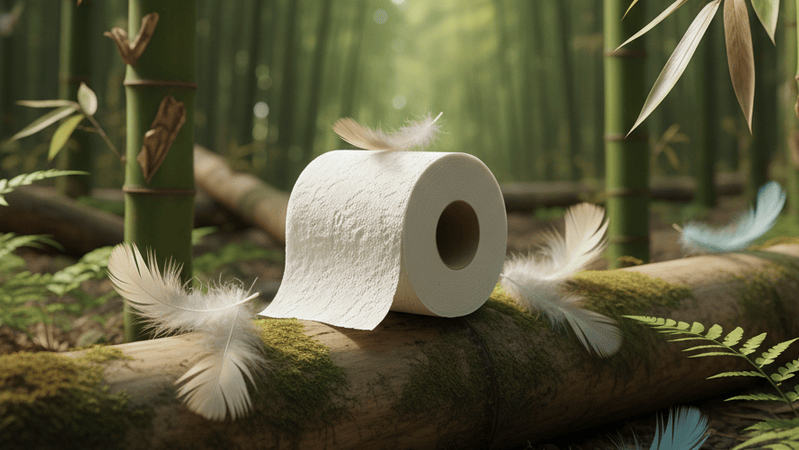Key Takeaways
-
The sustainability of bamboo toilet paper supports both people and the planet.
-
Bamboo is a renewable, low-maintenance source because of its growth and regeneration.
-
Bamboo is a relatively sustainable crop, and bamboo farming and the environment can work together to minimize deforestation.
-
A few green lifestyle changes can start a massive ripple effect towards environmental change.
-
Each purchase is a vote for a greener and healthier Earth.
From Forests to Bathroom: How Bamboo Grows, Regenerates, and Helps the Earth
Bamboo grows quickly, regenerates naturally, and supports the earth by replenishing soil and water. This makes bamboo bathroom tissue a wise choice for sustainability.
Did you know? According to Guinness World Records, bamboo can grow by 35” in only 24 hours. This amazing growth rate is one reason bamboo toilet paper sustainability has become popular with mindful, eco-friendly families. Unlike hardwood trees that can take decades, bamboo can replenish itself in just a few years, making it a truly renewable resource.
When you select bamboo products, you are not only selecting quality, you are also supporting the sustainability of our planet.
In this guide, we will understand how bamboo grows, regenerates, and helps the earth. So, continue reading.
Why Bamboo Is a Game-Changer for the Planet

Bamboo isn’t your standard crop. It grows like a weed and has the hardness of wood and the softness of fibre. With the right bamboo farming and environment balance, it can potentially replace many of the unsustainable materials we use every day.
Environmental Benefits of Bamboo
-
Carbon Sink: Bamboo absorbs more carbon dioxide than most trees.
-
Oxygen Factory: It produces 35% more oxygen than trees of equal size.
-
Very Few Chemicals: Most farmers don't apply any pesticides and keep the ecosystem clean.
These are just a few attributes of Bamboo; not only is it a renewable resource that meets the needs of mankind, but it is also improving the health of the environment.
The Science of Bamboo Growth and Regeneration

How Bamboo Grows
Bamboo is a member of the grass family. Therefore, when bamboo stalks are cut, the root system continues to grow. There is no need to replant the bamboo. New shoots will emerge from the rhizomes underground.
Why This is Important
-
Harvest does not kill the plant.
-
Soil erosion is minimized.
-
Farming becomes more sustainable in the long term.
Bamboo's growth and regeneration cycle make it one of the most environmentally efficient resources.
Bamboo Farming and Environment

Advantages for Farmers
Bamboo has a lucrative 3 to 5-year growth cycle. Which means farmers recover their investment sooner than with timber, which can take 20-50 years to grow. Additionally, bamboo farming and the environment are correlated, as it is more drought-resistant and requires less water.
Positive Environmental Effects
-
It enables soil erosion to stop since it has an extensive deep-rooting system.
-
It helps restore degraded or vacant land.
-
Increases the biodiversity of local ecosystems.
Bamboo farming can be done sustainably and with care, and bamboo can be beneficial to both the economy and ecology.
Why Bamboo Toilet Paper Is Worth the Switch
You might be thinking: does bamboo toilet paper really make a difference? Yes, it does.
-
Comfort - It’s very soft and gentle on your sensitive skin.
-
Strength - It is powerful; we don't tear easily.
-
Eco-Friendliness - It is 100% biodegradable and chemical-free; it breaks down easily.
With each roll of bamboo toilet paper you buy, you're reducing demand for tree-based paper, helping to cut down deforestation.
Eco-Conscious Lifestyle Tips for Daily Living
Sustainability is not about sweeping changes. It’s about small changes, over time. Here are some eco-conscious lifestyle tips to start with:
-
Forget the toilet paper made of trees and use bamboo rolls.
-
Bring cloth bags when you shop.
-
Use bamboo toothbrushes instead of plastic ones.
-
Save water by fixing leaks and turning off taps.
-
Begin a composting system for organic materials from the kitchen.
If you adopt just two or three of these changes, you are on the way to a healthier planet.
Creating a Ripple Effect in Communities
When you switch to using bamboo products, people around you will take notice. Friends, family, and neighbors often will follow your lead, and this ripple effect creates demand for greener products.
Bamboo toilet paper and sustainability go hand in hand. Your bathroom purchasing decisions may seem insignificant, but they may trigger a chain reaction that saves forests around the world.
Bamboo in Line with Global Sustainability Goals
Bamboo is in line with international sustainability goals. It is a component of the United Nations Sustainable Development Goals (SDGs), most importantly Goal 15: Life on Land. While bamboo is farmed, it can exist in harmony with the environment, reducing deforestation, protecting wildlife, and restoring land health.
Long-Term Impact of Bamboo Toilet Paper on Sustainability
Each roll of bamboo toilet paper is one step toward a big goal. Unlike conventional toilet paper, bamboo toilet paper does not involve the destruction of old forests and is made from a resource that grows quickly. That means smaller eco-impact and less greenhouse emissions from the very first phase of producing paper.
Get Ready to Take the Eco-Friendly Step!
Your daily habits can protect forests and help the planet. Switching to bamboo toilet paper and sustainability is a small but impactful step.
Lovely Poo Poo is a brand that makes this transition easy, as we are committed to all things safe, strong, and sustainable, made from bamboo. By simply selecting our products, you are supporting the production of cleaner air, healthier soil, and a lasting future.
Visit our website to find other options and to begin your eco-friendly journey.
FAQs
Q1. Is bamboo toilet paper truly sustainable?
Yes, it is sourced from a fast-growing renewable material that is quickly biodegradable and compostable.
Q2. Does bamboo toilet paper feel rough?
Not at all! It is super soft, smooth, and does not cause any kind of irritation.
Q3. Which is better, recycled toilet paper or bamboo?
Bamboo is a naturally regrowing material, and recycled materials still rely on tree-based waste. Overall, the footprint of bamboo is lower.
Q4. Is bamboo farming safe for the environment?
Yes. Bamboo reduces soil erosion, restores degraded land, and does not use a lot of water or chemicals.
Q5. Is bamboo toilet paper compostable?
Yes, it is 100% compostable and a product that will return to the soil without causing damage.






